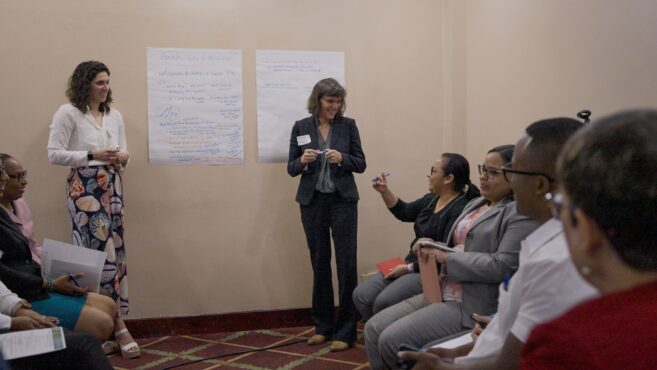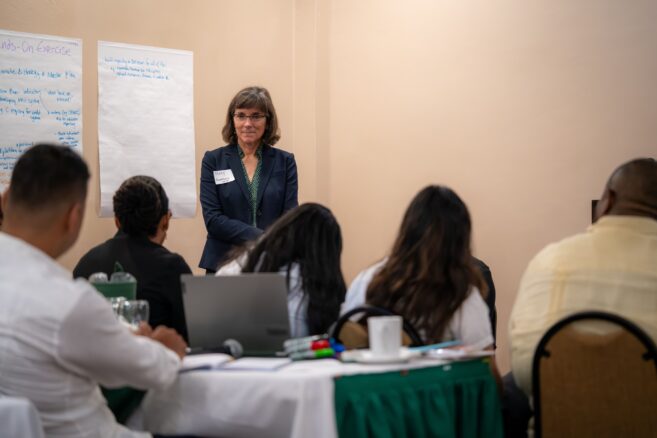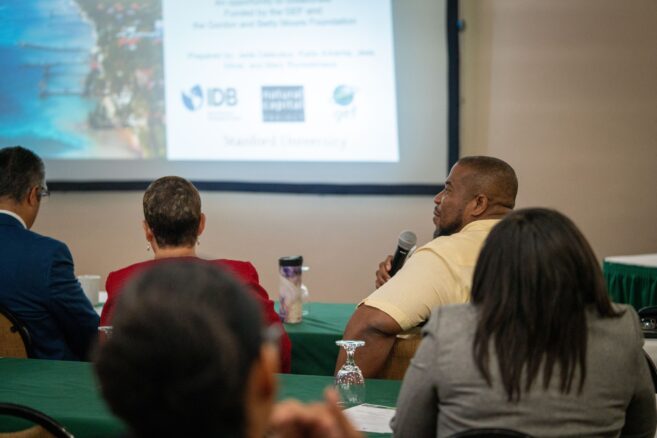On January 30, the Government of Belize, led by the Ministry of Economic Development in collaboration with the Blue Bond and Finance Permanence Unit and the Coastal Zone Management Authority & Institute, partnered with Stanford University’s Natural Capital Project (NatCap) and the Inter-American Development Bank (IDB) to convene a workshop titled “Monitoring Progress Toward a Prosperous, Sustainable Future.”
The workshop focused on the formulation of a centralized system to monitor and measure progress towards Belize’s climate, social well-being, and ecosystem goals. The aim is to enhance international investment and financing for sustainable development in Belize.
During discussions, Dr. Osmond Martinez, CEO of the Ministry of Economic Development, emphasized that “Belize, endowed with abundant natural assets, must leverage these resources for the collective benefit of all Belizeans, particularly the multidimensionally vulnerable population.”
Building on the success of Belize’s pioneering Blue Bond, which reduced the national debt by 12% and provided long-term financing for ocean conservation, this proposed project aims to establish science-based evidence of progress in achieving coastal habitat or climate targets and the associated benefits to the populace.
According to Beverly Wade, Director of the Blue Bonds and Finance Permanence Unit, “The Belize Blue Bonds is an excellent example of leveraging the value of Belize’s natural capital and its good environmental stewardship to unlock non-traditional financing from private sector to address debt and further invest in nature, which is central to the country’s national development and people.”
The project team will collaboratively formulate key performance indicators for use in results-based blue and green finance mechanisms, tying financing to the fulfilment of ecosystem protection or climate targets. Additionally, a monitoring, reporting, and verification process will be developed to track these indicators over time.
This workshop marks the inaugural step in creating a shared vision for implementing the processes related to natural capital in Belize. The event garnered widespread support from the IDB, cross-sectoral ministries of the Government of Belize, Belizean universities, and the private sector. Notably, several of these ministries and universities will play a pivotal role in capacity development efforts and the implementation of the tracking system. A key objective of this collaboration is to continually enhance capacity within Belize for employing natural capital approaches that integrate nature’s benefits into decision-making and encourage investments in ecosystems that enhance the well-being of both people and nature.
Mary Ruckelshaus, Executive Director of NatCap, said, “This work builds on Belize’s success to date with its Blue Bond Program and its Integrated Coastal Zone Management Plan. By quantifying specific benefits to the people of Belize in terms of livelihoods, monetary values, and reduced climate vulnerability, it will offer a model for other countries interested in using natural capital approaches to inform conservation and integrated management strategies, and their ability to attract results-based financing instruments.”
This pilot project is an integral component of the People, Planet, Prosperity Project, which is jointly developing natural capital approaches that directly shape policy and investment decisions for both development and ecosystem-related goals. The project team is actively sharing insights across pilot countries and beyond, with the goal of scaling up these approaches globally.
For further details about the Belize pilot project, a fact sheet will be uploaded on the Ministry of Economic Development’s website at med.gov.bz.
Belize takes Next Step as a Global Leader in Natural Capital and Innovative Finance Solutions

Share
Read more

